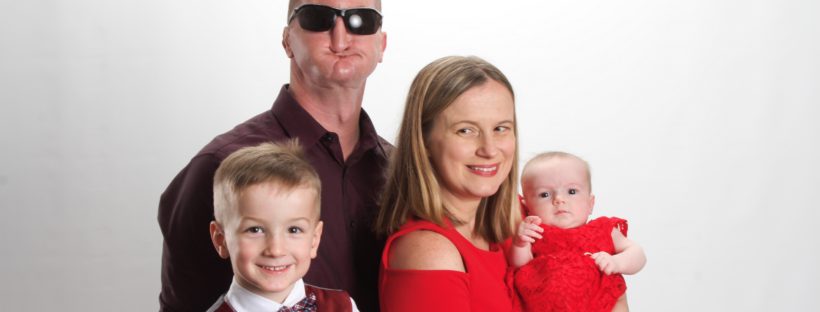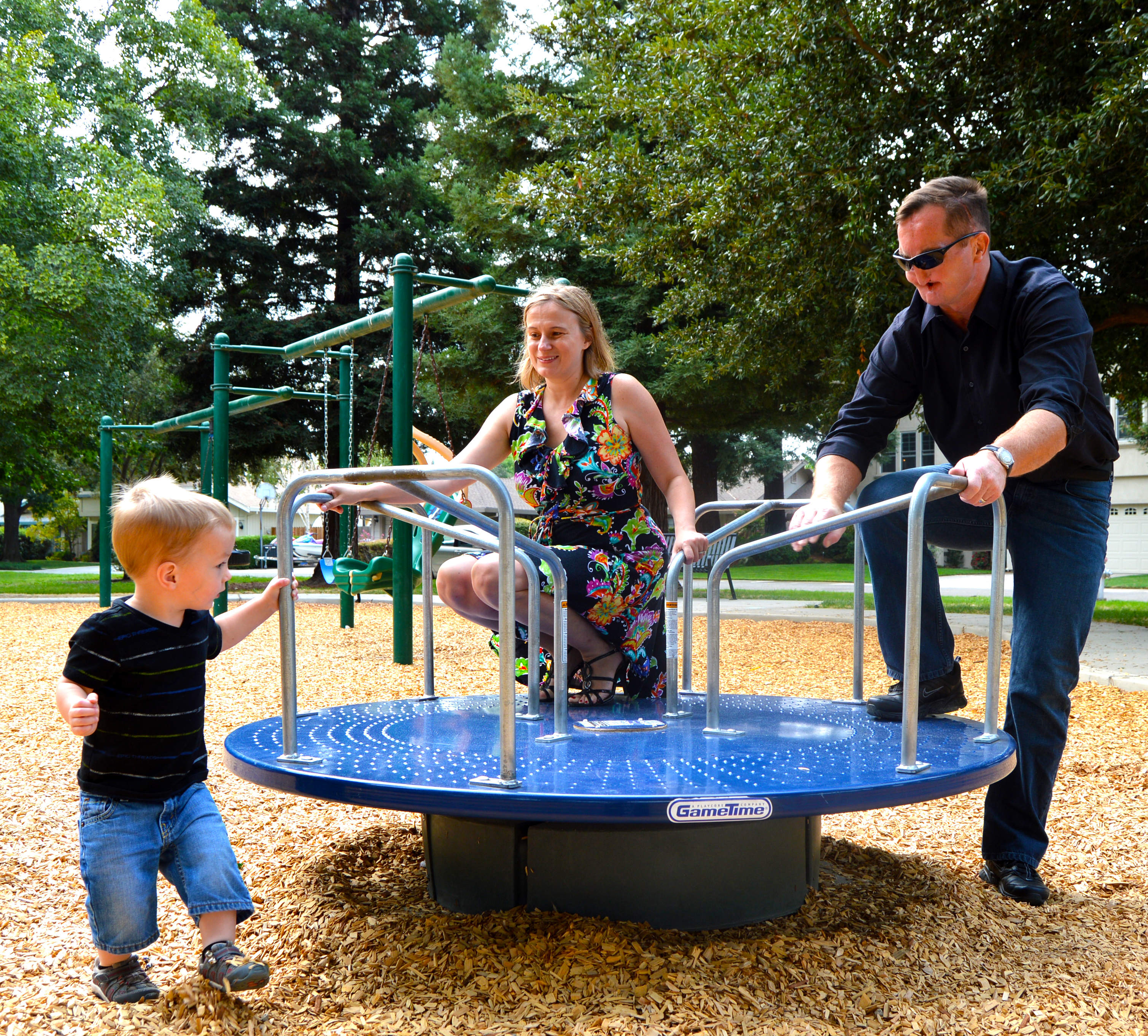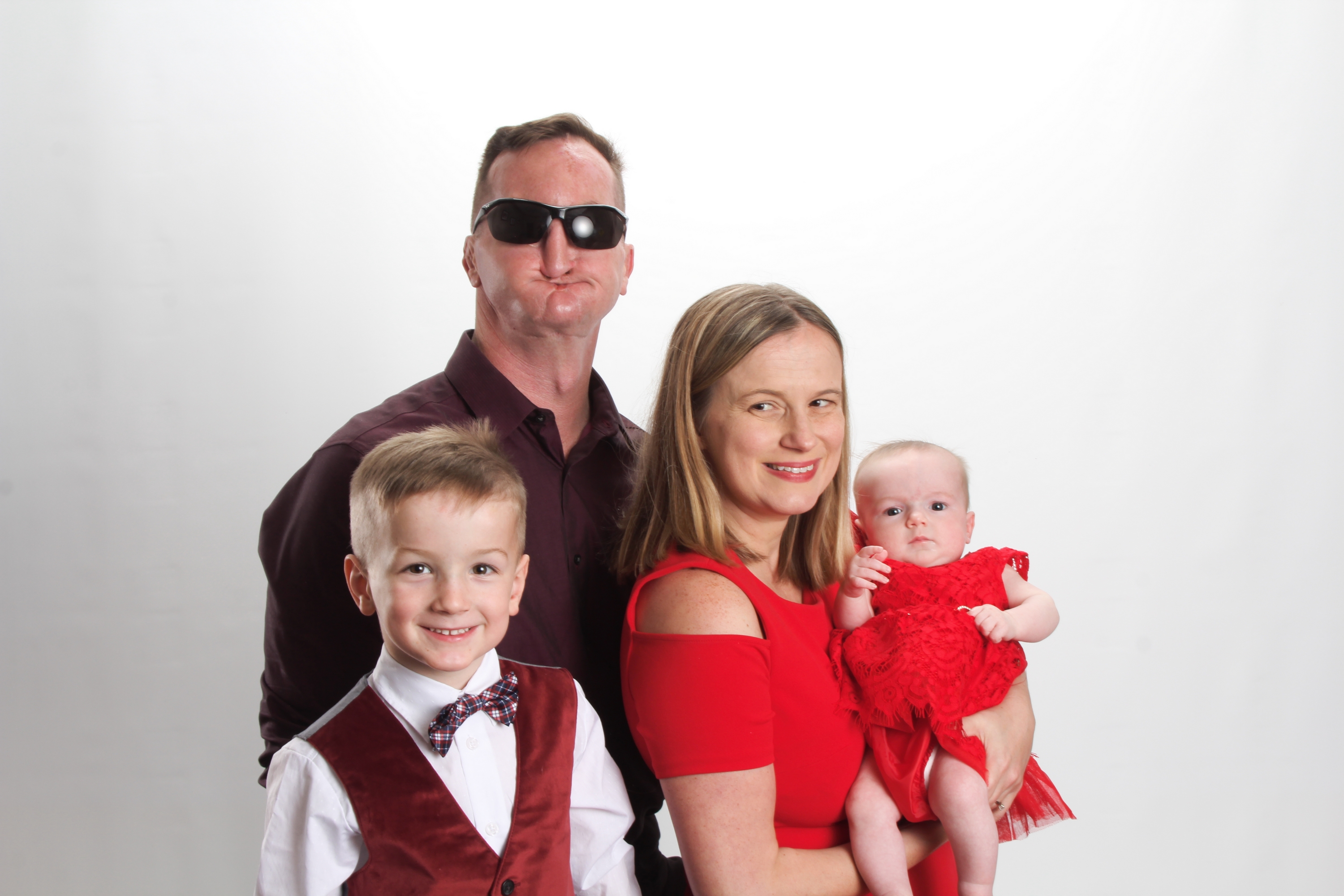By US New and World Report Columnist, Stacy Cervenka with Commentary by Christie del Castillo-Hegyi, MD
Several weeks ago, as I was perusing Facebook, I came across an article on the Fed Is Best Foundation’s page that felt like a punch in the stomach. According to new medical research, the number of incidents where exhausted new mothers drop their babies and the incidence of newborn head injuries had gone up substantially in hospitals that no longer offer newborn nurseries, but instead require mothers to “room-in” with their babies. It further angered me to read that most of these head injuries took place while a mother was breastfeeding.
I was so upset by this article that I couldn’t sleep that night, because all I could think was, “That could have been Leo. Why, why, why was I ever put in such a dangerous and inhumane situation that this could have happened?”
For many reasons, I have only shared this story with close friends and family, but here goes:
My pregnancy with our first child, Leo, was very difficult due to hyperemesis graviderum (HG). I had to take a medical leave of absence from my job and was confined to bed most days. I made several trips a week to urgent care to get IVs, as I couldn’t even hold down water. I lost a lot of weight and was very weak and exhausted. When my water finally broke, I hadn’t slept comfortably in probably six months. I had gotten almost no sleep the night before, as I was crouched in my shower vomiting and dry heaving (as usual). The labor and delivery itself was uneventful, but it was another 28 hours with no sleep or real rest. Our son Leo was born six weeks premature and had some minor issues regulating his body temperature and with his bilirubin.
After Leo was born, per the policy at UC Davis Medical Center, he was expected to “room-in” with us. When I was pregnant, this sounded lovely. Who wouldn’t want all the bonding time possible with their precious new baby? However, the night after Leo’s birth, I was exhausted, weak, and in so much pain, I could barely function. To add to this challenge, my husband and I both happen to be blind. There are thousands of blind parents across the United States who successfully care for their children each day, but being blind does often require us to concentrate more fully on what we’re doing. Doing things nonvisually, especially when you’re doing them for the first time, can require a little more physical and cognitive energy. However, I was just so physically exhausted and emotionally fried. All night long, the nurses kept getting me up to nurse and pump. I was so clumsy with exhaustion. I kept waiting for the point where they were going to insist that I get some sleep and recuperate, but that never came. It became clear to me that the only help the nurses were going to give us was to make sure that I was breastfeeding. When I wasn’t breastfeeding, the lactation consultants wanted the baby to sleep with me, so we could get lots of skin-to-skin. This only ensured that I continued to get no sleep because I just couldn’t get physically comfortable sleeping with the baby in the hospital bed and I was anxious about crushing him or pushing him off the bed somehow. (This concern may have been unfounded, but the fact was, I wasn’t physically comfortable sleeping with him; my husband and I had never wanted to co-sleep, and I just wanted to get some real rest.)
Because my son was born slightly premature, we spent 4 nights in the hospital with him. About 48 hours after his birth, my husband ran home to get some more clothes for us. I was alone in our room with the baby. While I was breastfeeding him, I fell asleep. A doctor woke me up some time later. The door to my room was wide open. I was sitting up in bed, with my hospital gown completely unbuttoned and my breasts just hanging out with Leo asleep across my lap. I was so freaked out. It was only good luck that he hadn’t fallen off the bed head first. I had fallen asleep sometime in the seconds between unbuttoning my hospital gown and putting Leo to my breast.
I was so upset that I finally broke down crying in front of the doctor. “I’m so tired. This is so hard,” was all I could say.
The doctor, who was a young intern or resident, had the following compassionate response: “What did you expect? Being a parent is hard,” he said.
Even at that time, before I had had time to fully process his comment, I thought, “Wow; thank you for that kind, professional and empathetic response. Is that what they taught you to say at medical school? Here I am in obvious psychological distress and that’s the help you give me?”
As the days wore on, it became abundantly clear that most of the staff didn’t care how I was doing physically or psychologically, as long as our breastfeeding was progressing nicely. My husband was as exhausted as I was and Leo had arrived 6 weeks early, so my mother had not been able to fly from Florida to California right after the birth as planned. You would have to know me to know how completely out of character this was for me to do, but as I was on the phone talking to my mom, I started crying and begging her to fly out to Sacramento right away. “I need somebody here who cares about ME!”
One complicating factor was that my husband and I did not want the hospital staff to be concerned about the fact that we were blind. Although California has laws protecting the rights of parents with disabilities, hospital staff often have negative misconceptions about parents who are blind. Just as with younger parents, single parents, and parents of color, hospital staff are more likely to make blind parents meet with social workers or meet with child welfare staff. My husband and I are both highly educated professionals with no histories of drug use or crime, so we were not concerned that they could take our baby away from us, but they definitely could have complicated our lives for weeks with social worker visits. One of the doctors had already expressed concern about how Greg and I would take care of the baby. So, we felt a lot of pressure to be totally on top of things and do not seem like we were struggling.
I left that hospital exhausted, in terrible pain, overwhelmed, and with significant postpartum depression. I ended up breastfeeding Leo almost exclusively for the first month, supplementing with formula until he was three months old, and then just switching to formula, which made everything so much easier and less exhausting. I was finally able to get a real night’s sleep, for the first time in over a year, without having to get up and either nurse or pump. The worst of my postpartum depression lifted like a cloud.
We chose to deliver our second child, Josephine, at a different hospital, Mercy General Hospital in Sacramento. The experience was completely different. The hospital does have babies room in with their mothers, but there was no pressure to breastfeed. We told them that we had decided to use formula and they respected that. My husband did all of the diaper changing and even the bottle feedings for the first several days while I just slept and recuperated. I held the baby, snuggled the baby, and loved on her, but no one made me feel like I should be doing more than that. The hospital didn’t allow co-sleeping, so there was no pressure to be either nursing or co-sleeping 24 hours a day. It was just such a better experience and I came out of the hospital with no post-partum depression at all. I was proud of myself for standing up for what I wanted and making sure my own needs were met, so that, when I did begin caring for the baby, I was well-rested and ready. I was surprised that it was indeed possible to have a positive, even delightful, labor, delivery, and post-partum experience. Who knew it could be like this?
In the time since my son was born, I have learned that my experience and my feelings are common. Many new mothers who were exhausted, in pain, and overwhelmed wish that their hospital had offered a nursery so that they could be well-rested physically and mentally when they were sent home and fully able to care for their new babies. I am even aware of a hospital in suburban Chicago that reversed its decision to do away with the newborn nursery in favor of babies rooming in with the mothers; the feedback from the women in the community and the women on the hospital’s advisory boards was so negative that the hospital brought the nursery back.
I am so glad that I have found the Fed Is Best Foundation and that they are doing work to bring attention to the negative repercussions of mandating that babies room in with their mothers and those mothers be solely responsible for their newborns’ care in the hours and days after their babies are born.
I am an active, engaged mother. Like most moms, I make sacrifices for my kids on a daily basis to give them every opportunity I can. But I need to be the one to determine which sacrifices are worth the costs to me and my family. In our case, it is worth the sacrifice to stand out at the bus stop in the snow to get my kids to swimming, gymnastics, ice-skating, and cooking classes. It is worth the sacrifice to me to sometimes pass up career opportunities that would mean less time with my children. But sacrificing my physical and mental well-being in the first 48 hours after giving birth for something of questionable or minimal benefit to my baby is not worth it to me.
According to a 2016 Cochrane Review looking at the effects of rooming-in on breastfeeding, the Cochrane reviewers found that there was no difference found between the two groups in the proportion of infants receiving any breastfeeding at six months of age (risk ratio (RR) 0.84, 95% confidence interval (CI) 0.51 to 1.39; one trial; 137 women; low-quality evidence). The rate of exclusive breastfeeding on day four postpartum before discharge from hospital was significantly higher in the rooming-in group 86% (99 of 115) compared with separate care group, 45% (17 of 38), (RR 1.92; 95% CI 1.34 to 2.76; one trial, 153 women; low-quality evidence), which likely reflects higher motivation among the mothers to comply with the Ten Steps guidelines. However, the authors concluded, “We found little evidence to support or refute the practice of rooming-in versus mother-infant separation. Further well-designed RCTs to investigate full mother-infant rooming-in versus partial rooming-in or separate care including all important outcomes are needed.”
It is absolutely fine if mothers prefer to room in with their babies. Hospitals should have supports in place to help them do so. But there also needs to be newborn nurseries, so that the many mothers who need to recuperate from pregnancy, labor, and delivery can do so in a safe and respectful manner.
In order to combat the rise in infant falls, head injuries, and postpartum depression, women need to feel comfortable asking for what they need while they are recuperating from pregnancy, labor, and delivery. They need to be listened to, cared for, and respected. The lives and health of both mothers and babies depend on it.
Stacy Cervenka is a journalist for the U.S. News and World Report. She has worked in the field of public policy since 2006. She has served as a legislative assistant to former U.S. Senator Sam Brownback, a government program analyst at the California Department of Rehabilitation, and as the executive officer for the California State Rehabilitation Council. She has worked primarily on issues surrounding disability employment policy, disability rights, adoption and foster care, juvenile justice, child protection, labor and transportation. Stacy is currently a full-time mom while working part-time from home as the grant administrator for the Nebraska Commission for the Blind. She also serves as the Chair of the National Federation of the Blind’s Blind Parents Group and sits on her local public transportation agency’s advisory board. She is currently developing an online travel and tourism forum specifically for people who are blind called the Blind Travelers Network. She lives in Lincoln, Nebraska with her husband Greg and children Leo and Josephine.
HOW YOU CAN SUPPORT FED IS BEST
There are many ways you can support the mission of the Fed is Best Foundation. Please consider contributing in the following ways:
- Join the Fed is Best Volunteer group to help us reach Obstetric Health Providers to advocate for counseling of new mothers on the importance of safe infant feeding.
- Make a donation to the Fed is Best Foundation. We are using funds from donations to cover the cost of our website, our social media ads, our printing and mailing costs to reach health providers and hospitals. We do not accept donations from breast- or formula-feeding companies and 100% of your donations go toward these operational costs. All the work of the Foundation is achieved via the pro bono and volunteer work of its supporters.
- Share the stories and the message of the Fed is Best Foundation through word-of-mouth, by posting on your social media page and by sending our resources to expectant moms that you know. Share the Fed is Best campaign letter with everyone you know.
- Write a letter to your health providers and hospitals about the Fed is Best Foundation. Write them about feeding complications your child may have experienced.
- Print out our letter to obstetric providers and mail them to your local obstetricians, midwives, family practitioners who provide obstetric care and hospitals.
- Write your local elected officials about what is happening to newborn babies in hospitals and ask for the legal protection of newborn babies from underfeeding and of mother’s rights to honest informed consent on the risks of insufficient feeding of breastfed babies.
- Send us your stories. Share with us your successes, your struggles and everything in between. Every story saves another child from experiencing the same and teaches another mom how to safely feed her baby. Every voice contributes to change.
- Send us messages of support. We work every single day to make infant feeding safe and supportive of every mother and child. Your messages of support keep us all going.
Thank you so much from the Founders of the Fed is Best Foundation!



